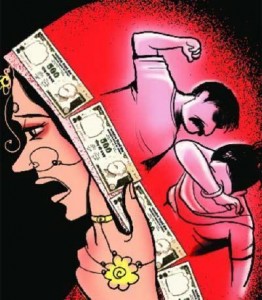In this blog post, Abhiraj Thakur, a student of NALSAR University of Law writes about reverse onus clauses in criminal law and lays down the reasons behind incorporating such clauses. He further deliberates on its implications in a criminal trial.
To have a procedure of trial that is fair and equitable to all the adversarial parties is one of the fundamental principles of criminal jurisprudence. In the interest of justice, equity, and good conscience, there are certain inalienable principles that are laid down; that constitute the basic framework of how the justice system works in this area of law. One among these inalienable features of the criminal justice system is the principle of ‘Presumption of Innocence’. In simplistic terms, an accused brought to trial must be given a fair chance to be heard and cannot be presumed to be guilty of a crime till the prosecution can prove their guilt beyond reasonable doubt. In a single line, an accused is ‘innocent until proven guilty’. In the famous case of Woolmington v. Director of Public Prosecutions, this principle was referred to as ‘golden thread principle of criminal law’. Today, this principle finds place in the criminal jurisprudence of various common law countries such as the United Kingdom, Canada, South Africa, United States of America and India.
Reverse Onus Clauses: Exception to the golden rule
While the presumption of the innocence of the accused is an age old doctrine enshrined in common law, and held in Indian law as well, jurists have created a rebuttal to the presumption of innocence wherein, an accused may be presumed guilty at the first instance, and the burden of proof is on the defence to prove his innocence or to create doubt about his guilt. A Reverse onus clause can be defined as ‘one that shifts the burden of proof upon the accused after the Prosecution proves the existence of a foundational fact that leads to the shift in burden.
Position In India: Presence of Both Principles
Though not clearly laid down in any legislation, the Presumption of Innocence is a recognized principle of criminal law in India. Section 101 and 106 of the Indian Evidence Act of 1872 talk about the burden of proof, but not whether such burden is upon the Prosecution or Defense. However, The Indian Judiciary has recognized presumption of Innocence under Article 20 and 21 of the Constitution. In the landmark Maneka Gandhi[1] case, presumption of innocence was held to the fundamental right of the accused.
Reverse onus clauses under Indian Criminal Law
Along with the presence of golden rule, there exist certain classes of offenses. In such cases, the accused is presumed guilty, prima facie, and the burden of proof is shifted onto the accused to adduce evidence towards his innocence or to create reasonable doubt about his guilt.[2] In India, the presumption of innocence is rebutted in two cases – firstly, when there is express statutory provision reversing the burden of proof, and secondly, when the accused appeals against the judgment of a lower court wherein his presumption is that of guilt and not innocence. The most well-known example of a reverse onus clause in our country is Dowry Death.[3] In cases of dowry death, the culpable mental state of the accused is presumed, imposing a presumption of guilt, instead of the usual presumption of innocence. This rebuttal to the presumption in criminal law often creates problems and conflicts in law.
Reasons for Incorporating Reverse Onus Clauses
Along with IPC, reverse onus clauses are present in many other anti-crime statutes in India. Statutes such as Essential Commodities Act of 1955 and Foreign Exchange Management Act of 1994 (FEMA) assume culpable mental state (Mens Rea) of the accused. Some of the reasons forwarded by jurists for incorporation of reverse onus clauses and statutes are:
-
Helpful in curbing grave offences:
The 47th law commission report of India suggested that there are certain crimes that gravely affect and harm society and so for such crimes it is necessary to dispense with the burden of the prosecution. The offences which the Indian judiciary has recognised as public welfare offences, it has deemed reverse onus clauses to be necessary to prevent such crimes. dowry death, falls within the second class of socio-economic offences. It was introduced as part of the Criminal Law Amendment Act No. 43 of 1986 as implementation of the 91st Law Commission Report[4].
-
Deterrent effect:
Such express statutory provisions are often made to deal with grave socio-economic offences that directly or indirectly harm the public welfare. The burden of proof is generally shifted to gain convictions in such offences where deterrence considerations are greater. In that light, an example is dowry death. It is considered a grave social offence that affects standards of morality in society, and the deterrence to cruelty on account of dowry demands is justified.
-
Judicial Convenience:
For reverse onus It is argued that it becomes more convenient and easy for the Prosecution to prove the basic fact that shifts the burden. In light of the difficulty of the Prosecution to enter private spaces like the home, and conduct investigations, search and seizures, the inconvenience of the Prosecution often becomes greater in criminal cases. For the sake of expediency and judicial economy, the lawmakers take this argument to reverse the burden.
-
Judicially Valid:
Lastly, the stance of Indian courts on reverse onus clauses has evolved greatly. In case of KM Nanavati[5] upheld the basic human right of the accused to be presumed innocent in trial. This led to widespread debate on validity of reverse onus clauses in Indian law. The position was finally settled P. N. Krishnalal v. Government of Kerala[6] where the court held that the presumption of innocence is not a constitutional guarantee and can be dispensed with by legislative imperatives and action. As reverse onus clauses have been held constitutionally valid by the judiciary, the lawmakers don’t hesitate in its inclusion.
Issues with reverse onus clauses
Since the very inception, reverse onus clauses have been subject of much debate and controversies. Some of the major contentions raised by the jurists in opposition to such clauses are:
-
Violation of Procedure established by Law:
It has already been laid in the Maneka Gandhi’s case that right to life and personal liberty can only be regulated by procedure established by law and that procedure must be just, fair and reasonable. Although In its doctrinal form, the reverse onus clause is justified as one which serves its legislative purpose, it becomes problematic due to judicial discretion and interpretation. More often than not, the evidential burden that is the standard of proof for the accused, when the onus is reversed, is raised to the threshold of a legal burden. Generally, the burden of the Prosecution is higher i.e., beyond reasonable doubt, while the burden on the accused is that of preponderance of probabilities. But due to judicial discretion, these standards are getting diluted with passage of time. If such standards are diluting then the procedure does not remain just, fair or reasonable. This makes reverse onus clauses volatile of procedure establishes by law.
-
Self-Incriminating in Nature:
By virtue of Article 20(3) of the Indian Constitution, no person can be compelled to be a witness against himself. The scope of Article 20(3) has been elaborately dealt with by the judiciary in many cases. Widening the scope of the provision in the case of M.P. Sharma v. Satish Chandra[7] the Supreme Court held that the right against self-incrimination includes right to remain silent. In reverse when the onus of burden of proof is reversed, it creates a situation where the accused, now presumed guilty must adduce evidence beyond reasonable doubt to prove his innocence and be granted an acquittal. It thus violates the right to remain to silent of an accused which comes in the ambit of fundamental rights in the constitution.
-
Potential Abuse:
It is very important while implementing reverse onus clauses, they must be weighed against the compelling public interest that they so deem to address. Often it is however seen that in order to achieve that public welfare, the legislation may create unnecessary reverse onus clauses and discriminate greatly between the accused of reverse onus offences and non-reverse onus offences contravening the principles of equality in the eyes of the law[8], and to an extent, being ultra vires of Article 14 of the Constitution[9]. In most bride burning cases, reporting is paltry and generally cannot prove the guilt of the accused conclusively. Most cases are registered under 498A[10] and the discretion of judges play a huge part in allowing the Prosecution to discharge their burden. For instance, in Maya Devi v. State of Haryana[11], the Prosecution could prove the basic fact of the meting out of cruelty on a preponderance of probabilities, giving great judicial discretion to deciding the limitation of time with respect to the phrase ‘soon before death’.
Reverse onus is one of the most contentious issues in the arena of criminal law, though at times they have served the purpose of curbing crimes but at the same time the possibility of their abuse cannot be disregarded. India incorporates both the principles of criminal law: presumption of innocence as well as reverse onus for some offences. The effectiveness of such clauses to have deterrence effect in long run will be an interesting thing to look for in times to come.
Footnotes:
[1] Maneka Gandhi v. The Union of India, 1978 (1) SCC 248.
[2] Section 4, Indian Evidence Act, 1872
[3] Section 304B, The Indian Penal Code 1860.
[4] 91st Law Commission Report, Law Commission of India, Ministry of Law and Justice, 1983.
[5] Supra Note 26.
[6] P. N. Krishnalal v. Government of Kerala, 1995 SCC (Cri) 466.
[7] M.P. Sharma v. Satish Chandra , AIR 1954 SC 300.
[8] Juhi Gupta, “Interpretation of Reverse Onus Clauses”, 5 NUJS Law Review, 2012, pp. 49-64, at 63.
[9] Article 14, Constitution of India.
[10] Section 498A, Indian Penal Code, 1860.
[11] Maya Devi v. State of Haryana, AIR 2016 SC 125.
 Serato DJ Crack 2025Serato DJ PRO Crack
Serato DJ Crack 2025Serato DJ PRO Crack












 Allow notifications
Allow notifications



[…] A. Sylvine, What is a Reverse Onus Clause in Criminal Law?iPleasders, June 24, 2016. available at https://blog.ipleaders.in/reverse-onus-clause-criminal-law/#_ftnref4 (last visited 21st August […]